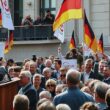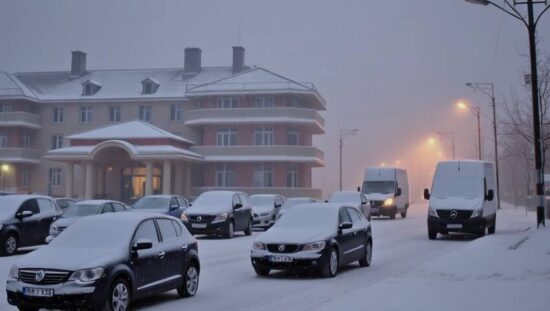In Bosnia and Herzegovina, currently battered by a severe snowstorm, a political escalation also looms in the background. The National Assembly of the Republic of Srpska, one of the two entities of Bosnia and Herzegovina, has passed a series of controversial resolutions that undermine the authority of the state and could lead to a return to political blockades.
The National Assembly (RSNA) of the predominantly Bosnian Serb-populated Republic has called on its President Milorad Dodik to appear before the State Court of Bosnia and Herzegovina only if he is physically able to do so. An earlier version of the resolution, which was passed in a special session on Christmas morning, was slightly toned down, with Dodik being called upon not to appear in court at all.
Dodik is currently facing trial for disregarding decisions of the High Representative, Christian Schmidt, who, based on a US resolution, oversees the implementation of the civilian aspects of the Dayton Agreement, which ended the war in Bosnia and Herzegovina in 1995.
The RSNA’s resolutions also include a demand that representatives of the Republic of Srpska cease cooperation on the state level until the case against Dodik and other defendants is concluded. At the same time, it is claimed that the process against Dodik is politically motivated and is in conflict with the Dayton Agreement.
In a joint statement, the US, British, German, French, Italian, and EU delegations in Bosnia and Herzegovina sharply criticized the RSNA’s decisions on Wednesday. This decision is “anti-Dayton” and endangers the constitutional order of the country. The Dayton Agreement clearly states that the Constitution of Bosnia and Herzegovina and the decisions of state institutions take precedence over the laws of the entities like the Republic of Srpska.
The statement further notes that blockades on the state level could seriously jeopardize the country’s progress on the path to EU integration. NATO joined in, saying it was closely following the developments in Bosnia, according to Boris Ruge, the German diplomat and Deputy Secretary-General of NATO for political affairs and security policy, on Wednesday.
While the government of the Republic of Srpska defends the resolutions as a protection of its rights, critics, including opposition representatives, accuse the RSNA of only protecting Milorad Dodik and his political interests.
Dodik, who has been on the US sanctions list since 2017, has long been criticized for his controversial steps to weaken state institutions. He is supported in this by Hungary and Russia, among others. In return, Dodik has described Russia’s actions against Ukraine as “justified” and in early 2023, he awarded Russian President Vladimir Putin with an order.





